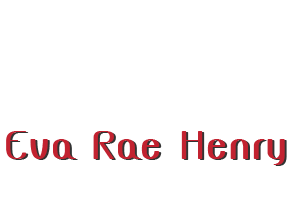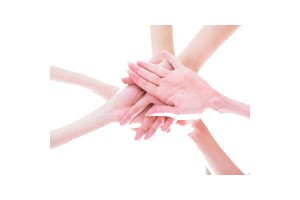Through my personal experience of motherhood, I just felt there was something going on. Then, I spotted Ann Crittenden’s book The Price of Motherhood and began researching from there. What I went through in the professional workforce also compelled me. I was laid off at eight months pregnant. As a stay at home/part-timer for several years, it also was just experiences with other professionals, what I wanted out of my life. I felt extremely boxed in due to personal circumstances. I had a career, raised my children, then went back to work, but my job now is a “mommy job.” I was a consultant, but can’t do that anymore as there is no flexibility. I am trying my best to be like a lot of moms – who felt forced out or had to leave for many reasons, because of children, or taking care of other people. These are the mothers who take lower paid work, and who just cobble together solutions.We make ourselves as adaptive as humanly possible in a corporate and financial world that is not adaptable to our circumstances as parents.I see it a lot in college/university life, especially with grad school female students, where they feel the clock is ticking, and they are trying to figure out how to cobble it all together – trying to remain marketable and flexible.
Basically, I went by my mother’s example – she had a sacrificial attitude: “you do everything for them.”
” You make a choice.” She understood the need to work, and I absorbed that, that mothers were the ones to do most of the work. But once I got into it, my attitude started changing. My mother spent 35 years as a SAHM, some part time. After 35 years, my Dad divorced her. That 35 years meant nothing to the court, nothing. As adults, we children were able to help her with legal expenses, but not everyone has such a resource.
It is almost like we lose our humanity. I did not feel I had any value, really. I knew I was doing something good by raising my son, but did not feel I was contributing at all. It’s been drilled into me by culture and education. There’s something wrong with that.
On T.V., we’d see more Rosannes. We would be able to breastfeed in public. We would not have to be afraid when the phone rang from school, like we would get fired if our kid is sick. Young people are afraid to have children. They don’t know how they will do it. Companies are talking about having some say in whether or if we have children (freezing eggs). It’s as if our life ends as soon as we have children.
I do believe there is, at least in terms of there not being any community. The mothers I speak with definitely do not feel that there is any community. In my experience, I would go to the park. I’d try the playdates, but often there is a sense of discomfort. It feels very judgmental. You fear your child would offend the other child. There is a sense of futility. Several mothers talk about how they feel disabled, or distant, from community. Mothers really need each other to go through this process. My area is full of transplants, people are between 30-40 years old, at the cusp of career and child-bearing. They don’t know anyone. People are status conscious. They feel so alone.
In other respects, we are our own worst enemies. We really cannot get ahead. We are eating each other alive, or lashing out at the world. There are a lot of issues that put us in opposition, where women would rather sit and fight than get something done. That’s fine for distracting women from their own realities.
We are preyed upon by the cultural fear that we will turn out to be a bad mom. Then, other mothers live in a state of oblivion. I’ve interviewed opt outers, more upper class people; as I get lower and lower in class, the more oblivious they seem to get, especially about what’s going on in society. For instance, talking to a hairdresser -” I’d rather just not know. I just want to raise my kids and go on.” You put your head down, and just do it, and feel as though nothing can change.
Is it really a situation where we are saying: “This is my choice,” or are we accommodating someone else’s structure? They fall back and begin to acknowledge that they are just trying to survive
Upper class women are more vocal, and feel privileged. They do feel it would be different if they were lower class women. If kids get sick, they would miss out on work, miss out on tips, like the women who fear they would not be able to feed their kids at the end of the week.
The internet has made a hell of a lot of difference. Women, as bloggers, are bringing money into the home. They are able to meet other moms and talk about things; it has helped to break isolation.
I see a lot of both. For every woman, there is a different story. They definitely want to be mothers. I often ask the loaded question: do you have any regrets? I have been counting words they use: one said sacrifice about 12 times. Choice is the big word, I hear it all the time. 14 moms, 16 young adults so far. Everyone says the word choice.
When I ask if it is a dirty word, often times they say it is an important word. They say that pretty much the world doesn’t take mothers seriously, as seriously as other things. 16 boys and girls when asked about words that describe mothers and fathers, all said caring, loving, compassionate for mothers. Fathers were characterized as provider, protector.
All of them had mothers who worked for pay; still when they related it to me, they classified women in stereotypical ways. Fathers were better regarded. One young adult grew up in Ghana, and he said that over there, the child raising is done in communal ways. International students could see such a different phenomenon here versus in their own countries. Here, they see the experience of raising kids as more negative. They see there is no value, it is not central.
It is shifting to where kids are saying: I’m not going to have any kids. I see this in urban areas and with broken families. It is just so hard – it is economically infeasible for them to have children. Most kids are so far in debt right out of college, the prospect is just not viable.
It is at the core of our society. Yet, we have no respect for it because so much, everything, comes down to the dollar. What we say we value is not really what we value – everything from culture and what we claim to be — what we say we value as a society seems to be a mismatch.
Mom should mean a productive, fulfilled, important member of society, that what a mother is doing is important to our culture and society. We are raising the next generation, next workers. It is one of the essential, most important vocations. It should be held up. We are raising human beings. It’s one of the most important things out there.We need more flexibility, better business practices. When you turn on the T.V. – just look at the fuss about the royal, Catherine —“she left hospital too soon!” Oh, just the judgment. We need to stop it.
We need to stop so that we support each other. Stop where our personal decisions are up for scrutiny. We are giving families untold amounts of stress, and impossible expectations. Stress funnels down to family and children – to practices. It doesn’t facilitate happy, healthy children.
I am working on a brand new trailer and crowdfunding campaign. We would like people to support the effort financially — even a buck helps. We want to tell the stories of mothers, and need your help. Retweeting and posting the trailer and campaign would be really helpful too. If possible, I’d like to visit with mothers on my travels as well.
To fund the “Mom is a Dirty Word” Indiegogo campign, and view the trailer (!) please visit: http://igg.me/at/momdirtyword
I helped out another mother. We had our graduation at the university, and as a professor, she had to attend the ceremony. This mother has a two year old, so I was babysitting!
– Wishing all Dads and the families who love them a Happy, healthy Father’s Day!! – ERH


